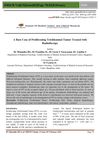 February 2024 in “Journal of medical science and clinical research”
February 2024 in “Journal of medical science and clinical research” Radiotherapy effectively treated a large scalp tumor in an elderly woman, avoiding surgery.
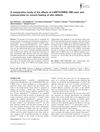 February 2015 in “Journal of Biomedical Materials Research Part B: Applied Biomaterials”
February 2015 in “Journal of Biomedical Materials Research Part B: Applied Biomaterials” 4-META resin heals skin wounds faster and better than cyanoacrylate.
 6 citations,
November 2022 in “Journal of autoimmunity”
6 citations,
November 2022 in “Journal of autoimmunity” JAK inhibitors like tofacitinib may effectively treat Alopecia Areata.
 11 citations,
August 2020 in “Dermatologic therapy”
11 citations,
August 2020 in “Dermatologic therapy” The document concludes that mesotherapy can be effective for skin and hair treatments, but more research is needed to confirm its safety and effectiveness.
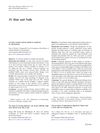 July 2009 in “Medical & surgical dermatology”
July 2009 in “Medical & surgical dermatology” Low-dose acitretin helps nail psoriasis, stem cells may treat scarring alopecia, Chinese men have lower baldness rates, lateral foldplasty is good for ingrown toenails, hair diameter helps diagnose female baldness, childhood trauma linked to alopecia areata, certain hair-weaving leads to scalp conditions in African American women, and new methods for hair research and understanding hair and sweat gland development were introduced.
 January 2016 in “Springer eBooks”
January 2016 in “Springer eBooks” Understanding drug interactions, side effects, and patient-specific factors is crucial for effective dermatological care.
 28 citations,
November 2019 in “Frontiers in Endocrinology”
28 citations,
November 2019 in “Frontiers in Endocrinology” Vegetarian Indian women with PCOS have higher inflammation levels than non-vegetarians.
17 citations,
January 2018 in “Journal of cutaneous and aesthetic surgery” The article discusses debates on hair transplant techniques, safe donor areas, PRP use, and practitioner qualifications in hair restoration.
 34 citations,
January 1943 in “Endocrinology”
34 citations,
January 1943 in “Endocrinology” Adrenalectomy boosts hair growth and melanin in black rats, even with vitamin B¹ deficiency.
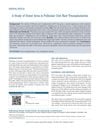 10 citations,
January 2013 in “Journal of Cutaneous and Aesthetic Surgery”
10 citations,
January 2013 in “Journal of Cutaneous and Aesthetic Surgery” Narrower donor strips and special closure techniques in hair transplants lead to smaller scars and happier patients.
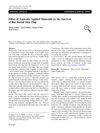 6 citations,
September 2012 in “Aesthetic Plastic Surgery”
6 citations,
September 2012 in “Aesthetic Plastic Surgery” Minoxidil applied before and after surgery improves skin flap survival in rats.
 2 citations,
January 2023 in “BioMed Research International”
2 citations,
January 2023 in “BioMed Research International” Beetroot extract nanogel may help treat hair loss caused by testosterone.
 37 citations,
January 2019 in “Food science & nutrition”
37 citations,
January 2019 in “Food science & nutrition” Bergamot may improve heart health, skin conditions, and mood, but more research is needed to confirm these benefits.
 June 2022 in “Journal of the Liaquat University of Medical and Health Sciences”
June 2022 in “Journal of the Liaquat University of Medical and Health Sciences” People with lichen planus are more likely to have abnormal blood fats than healthy people.
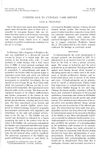 15 citations,
May 1966 in “The Journal of Urology”
15 citations,
May 1966 in “The Journal of Urology” A woman developed severe bladder inflammation after cancer treatment with Cytoxan.
7 citations,
November 2018 in “British Journal of Dermatology” Alopecia areata is caused by immune system issues, and JAK inhibitors might help treat it.
 November 2015 in “European journal of dermatology/EJD. European journal of dermatology”
November 2015 in “European journal of dermatology/EJD. European journal of dermatology” A 55-year-old woman with several health conditions did not see hair regrowth after a transplant.
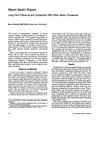 17 citations,
May 1983 in “The American Journal of Surgery”
17 citations,
May 1983 in “The American Journal of Surgery” The Mason gastric bypass is a better surgery for weight loss with fewer complications compared to other methods.

YH0618 helps reduce chemotherapy-induced hair loss by targeting specific proteins and pathways.
 1 citations,
July 2020 in “Journal of Biomedical Translational Research”
1 citations,
July 2020 in “Journal of Biomedical Translational Research” Raccoon dogs can adapt well to life with three legs after forelimb amputation.
 September 2023 in “Nature Communications”
September 2023 in “Nature Communications” Immune cells are essential for skin regeneration using biomaterial scaffolds.
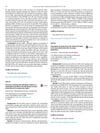 October 2017 in “Indian heart journal”
October 2017 in “Indian heart journal” Higher levels of small, dense LDL cholesterol are linked to a greater risk of heart attack in young adults.
 25 citations,
January 2009 in “Oral and Maxillofacial Surgery Clinics of North America”
25 citations,
January 2009 in “Oral and Maxillofacial Surgery Clinics of North America” Successful hair transplant surgery depends on careful patient selection, proper surgical plan and technique, and attentive aftercare.
 5 citations,
January 2019 in “Elsevier eBooks”
5 citations,
January 2019 in “Elsevier eBooks” Current therapies cannot fully regenerate adult skin without scars; more research is needed for scar-free healing.
 22 citations,
October 2020 in “Anais Brasileiros de Dermatologia”
22 citations,
October 2020 in “Anais Brasileiros de Dermatologia” The Brazilian Society of Dermatology agrees that oral isotretinoin is effective for acne and other skin conditions, and it's safe when monitored, but more research is needed on dosing and duration.
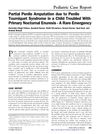 6 citations,
January 2013 in “Urology”
6 citations,
January 2013 in “Urology” An 8-year-old boy with bed-wetting issues suffered a severe penile injury from tying a thread around his penis, requiring urgent medical treatment to avoid worse outcomes.
 9 citations,
September 2017 in “Nanoscale Research Letters”
9 citations,
September 2017 in “Nanoscale Research Letters” Graphene oxide helps deliver a skin healing agent over time, improving skin and hair follicle regeneration.
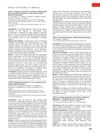 July 2014 in “Plastic and Reconstructive Surgery”
July 2014 in “Plastic and Reconstructive Surgery” Sentinel lymph node biopsy is recommended for all types of desmoplastic melanoma due to higher rates of nodal metastasis.
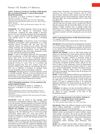 July 2014 in “Plastic and Reconstructive Surgery”
July 2014 in “Plastic and Reconstructive Surgery” Sentinel lymph node biopsy is recommended for all types of desmoplastic melanoma due to higher rates of nodal metastasis.
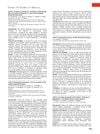 July 2014 in “Plastic and Reconstructive Surgery”
July 2014 in “Plastic and Reconstructive Surgery” The document concludes that rib-sparing techniques in breast reconstruction have limited benefits, sentinel lymph node biopsy is needed for desmoplastic melanoma, certain hair preservation methods improve graft survival, partial turbinectomy effectively reduces nasal obstruction, nipple shields with irrigation may reduce capsular contracture, and thicker malignant melanomas have a higher risk of non-skin cancers.




























